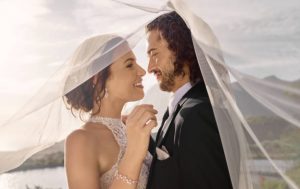Neighbours has reinforced stereotypical images of suburban white Australian heteronormative suburbia since its inception. It also evolved in order to push the boundaries of representations around gender, sexuality, and feminist.
We bid farewell to the residents of Ramsay Street and also say goodbye to 37 years that saw a popular cultural juggernaut reflect – or not – the social changes since the mid-1980s.
Soap operas such as Neighbours are a great way to spread feminist ideas. Popular culture can be a powerful tool for challenging gender and sexuality stereotypes.
Was Neighbours an empowering feminist film or just a random collection of progressive ideas and representations? In order to assess the feminist success of Neighbours, one must consider how gender and sexuality were portrayed over the last four decades and how audiences reacted.
Read more: The loss of Neighbours is a loss of career pathways for Australia’s emerging screen professionals
Early strands of feminism
Neighbours, like feminism, have many predecessors to thank.
Bea Smith was on Prisoner from 1979-86, Sister Scott was on The Young Doctors from 1976-83, and Pat the Rat appeared on Sons and Daughters from 1982-87. These characters were archetypes as well as boundary-pushers, and their inherent tensions contributed to their popularity among fans.
Julie Robinson (Vikki blanche) worked as a bank teller in 1985 when Neighbours first aired. Helen Daniels, played by Anne Haddy, was the matriarch. Daphne Lawrence, played by Elaine Smith, was a stripper who worked unashamedly before she “tamed” herself and began a new career as a cafe owner.
She was a woman who was always busy around Ramsay Street during the peak of Neighbours in the late 80s. Mrs Mangel, played by Viean Gray, shared this status with many feminists accused of being “out-of-turn”. She shares the same status as many feminists who are charged with being “out-of-turn” – to the point that Gray left the show in 1988 because of the abuse received in public.
Charlene Mitchell, played by Kylie Minogue, was a mechanic who defied gendered expectations of a career with her “girls can achieve anything” attitude.
But, the anxiety about portraying teenage sex in primetime television was eased by marrying her to Scott Robinson (Jason Donovan), at age 17
Daphne and Charlene may have challenged stereotypes, but they eventually submitted to acceptable norms.
Feminism is expanding into more places
As the 20th century dawned, feminism became more explicit, and women became more complex.
Flick Scully, played by Holly Valance, was a dedicated feminist teen who cared deeply about social justice. However, her stories focused on her romantic relationships.
In 2004, Janelle Timmins, a single mother with six children and unruly women, parked her van on Ramsay Street. She gambled, swindled and claimed credit for The Bogan’s Tipped Hair. The novel was based on the feminist novel The Bride Striped Bare, which was Australia’s top selling novel in 2003.
In the 2010s, the women from Neighbours started to hold their own in corporate life. Therese Willis, played by Rebecca Elmaloglou, was the most prominent. She juggled her turbulent relationship with Paul Robinson while running the Lassiters Hotel.
Gender and sexuality
The first mixed-race and same-sex wedding was broadcast on Australian television in August 2018 when David Tanaka and Aaron Brennan were married by Magda Schubaski.



